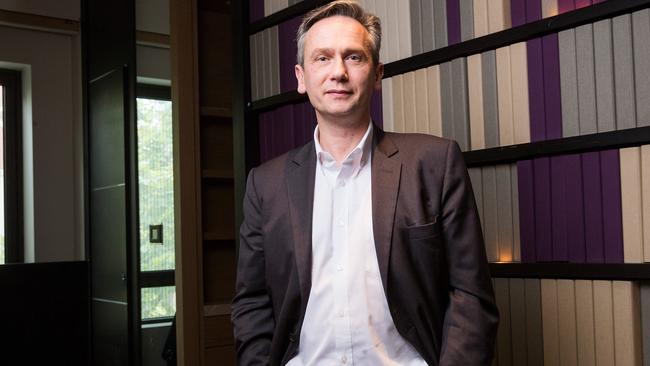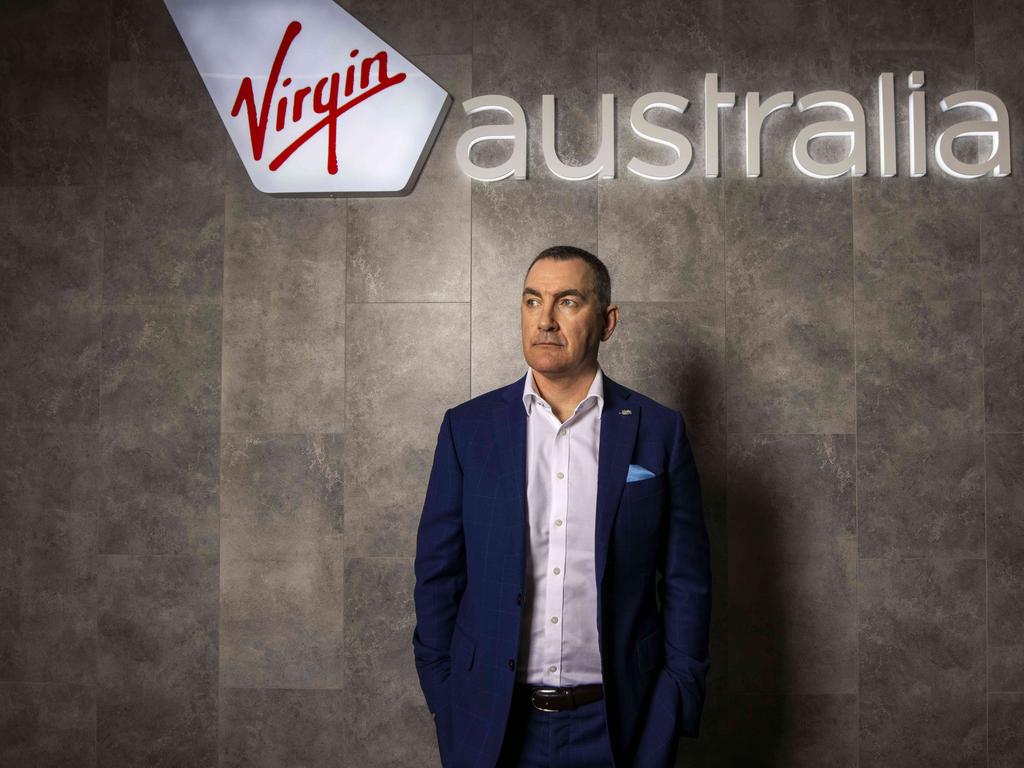
It did so in May after at least 17 years of negotiations with the traditional owners, knowing it told parliament it was the “most important archaeological site in Australia”, because it had higher quality iron ore around it.
Better quality ore means higher returns from China.
On Friday, company chief JS Jacques fronts a parliamentary inquiry examining the tragedy and will be full of contrition and explaining how the company is making sure it won’t happen again and what went wrong.
The real question is how is Jacques still in the job nearly three months after the tragedy?
Well-run companies must make executives accountable, and Jacques should go sooner rather than later. The saga has been running for 17 years but Jacques presided over the final series of tragic mistakes.
Rio’s parliamentary submission, released this week, effectively threw iron ore chief Chris Salisbury and the unnamed mine manager at the site under the bus, and their heads will certainly roll. But this is a big company failure of extraordinary proportions, dating back to 2003 — and yet we will have to wait until October, when a board review is completed, for action to be taken.
What happened was nothing more complicated than a virtual garage clean of the historical artefacts around the site. The decision was made to proceed with the blasts back in 2018. An admission came that the local landowners didn’t realise how advanced the plans were, and when Rio realised it may have been a mistake, the company made the choice to proceed with the blast.
The alternative was to take a more complicated and potentially dangerous route of sucking out the explosives, so it just blew up 46,000 years of history.
On any read of the facts presented to parliament, it was a disgrace from start to finish.
What happens from here?
Granted we are in the middle of a global pandemic and the one-time world’s most liveable city is in lockdown again as a direct result of Victorian government incompetence, but the lack of public commentary on the Rio scandal is itself a scandal.
When the chair and chief executive of three of the top four banks in the country fell on their swords in recent years in the wake of repeat scandals, everyone from the Prime Minister down was calling for their heads.
This time there is silence.
The company’s biggest shareholders — BlackRock, State Street, Vanguard and Norges — are primarily passive funds that have said nothing.
AustralianSuper and other local funds have gone to the board and management to raise their concerns but have been told to hold off until the full facts are known after the board review.
Presumably, if by then nothing happens, the funds will protest from the rooftops.
Rio has any number of bridges to mend, starting most obviously and importantly with the local landholders whose heritage has been blown up to ship better quality ore to China.
Big miners tend to win political fights, and right now the iron ore producers are single-handedly keeping the country afloat. But the company’s licence to operate is surely in question.
Just how Rio reacts should decide whether it can continue to run roughshod over history.
It’s not like the company didn’t know what it was doing. In its parliamentary submission, the company noted a 2018 report saying “Juukan 2 is of the highest archaeological significance in Australia”.
Rio proceeded, knowing the “Juukan-2 rock-shelter has the amazing potential to radically change our understanding of the earliest human behaviour in Australia. To date, there is no other site of this age with faunal remains in unequivocal association with stone tools. The significance of this cannot be overstated.”
The company stated in its submission to the parliamentary inquiry into the tragedy: “Our purpose at Rio Tinto is to produce metals and minerals that are essential to human progress.”
The company said the board would “assess whether our internal cultural heritage management systems, processes and governance are fit for purpose, and it will identify the improvements needed to prevent any recurrence of the destruction of heritage sites of exceptional archaeological and cultural significance such as the Juukan rock-shelters”.
The answers are known already and now we are waiting for the dual-listed company to act.
Origin of a new era
COVID-19 has changed business forever in some key respects but its impact on corporate travel remains uncertain, with most now saying it will never be the same again.
Origin’s Frank Calabria told a Stanford University forum on Wednesday the digital transformation was a reality, which means corporate travel will be down.
The same was said after September 11, 2001, when planes were used as terrorist weapons, but it soon bounced back.
The revival is obviously a key issue for Bain, which has all but taken control of Virgin Australia. The airline confirmed reports in this column on Wednesday morning that 3000 — or one third of its jobs — will go, with Paul Scurrah backed as the chief executive to take the carrier out of administration, Tiger Airlines scrapped but its registration kept alive for potential use later, and a new fleet based around the Boeing 737.
Suffice it to say that after hoovering up 90 per cent of domestic airline profits in the past five years, Qantas’s Alan Joyce will not be quaking quite yet.
While Scurrah and his new bosses at Bain are working through the details before the creditors meeting on September 4, Origin’s Calabria is doubling down on the digital revolution. He told the Stanford seminar: “I am very excited about digital and what it can achieve.”
In May, he spent $507m buying a 20 per cent stake in UK energy platform Octopus, which will help revamp his customer relations.
Calabria talks a lot about “citizenship as a source of competitive advantage”. By that, he means a company that wins customer trust has a big advantage over its comrades in the energy oligopoly.
The key to winning trust, according to Calabria, is product, service, price and loyalty. This means transferring lower corporate costs to customers, reliable supply and better service — which he hopes will come via the Octopus platform.
Origin now has a cost to serve its retail customers of $169 a year, against $180 at AGL, and this will fall to as low as $120 by year’s end as the Octopus Kraken software is rolled out.
Calabria has also teamed up with start-up OhmConnect, which uses game-based software to encourage consumers to be managing their supply better by turning on the washing machine in the middle of the day when you are under solar power rather than at night when you are paying for it.
In 2019, OhmConnect paid more than $US3.2m ($4.44m) to its users for a reduction of more than 387MWh in electricity demand — or the equivalent of charging 34 million smartphones.
The energy saved by the OhmConnect community was equivalent to removing 1189 tonnes of garbage from landfill or planting 4565 acres of new trees. He also has a five-year joint technology development partnership with a US company called Intertrust, which is a global pioneer in digital rights management technology, data security and privacy.
Solar rooftops now provide 14.8 per cent of residential energy needs, with 2.5 million units installed, and this in turn makes it tougher to manage system-wide and for the individual energy company. Calabria figures if he can control the customer flow to and from the grid effectively, this too will boost his earnings.





The Taj Mahal is 388 years old, the Great Wall of China 2300 years old, the Great Pyramid of Giza 4478 years old — and the Pilbara Juukan Gorge was 46,000 years old before it was blown apart by Rio Tinto.